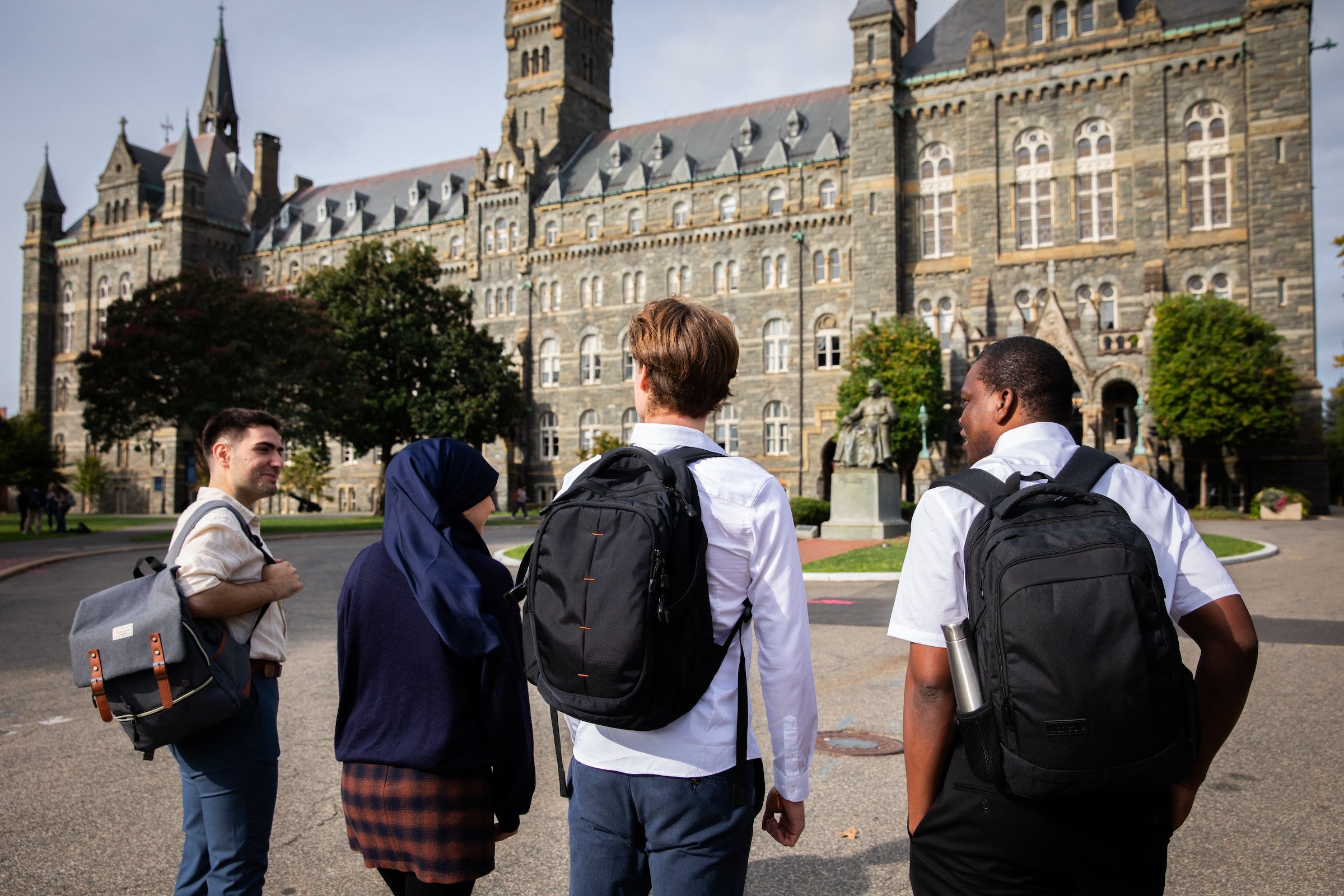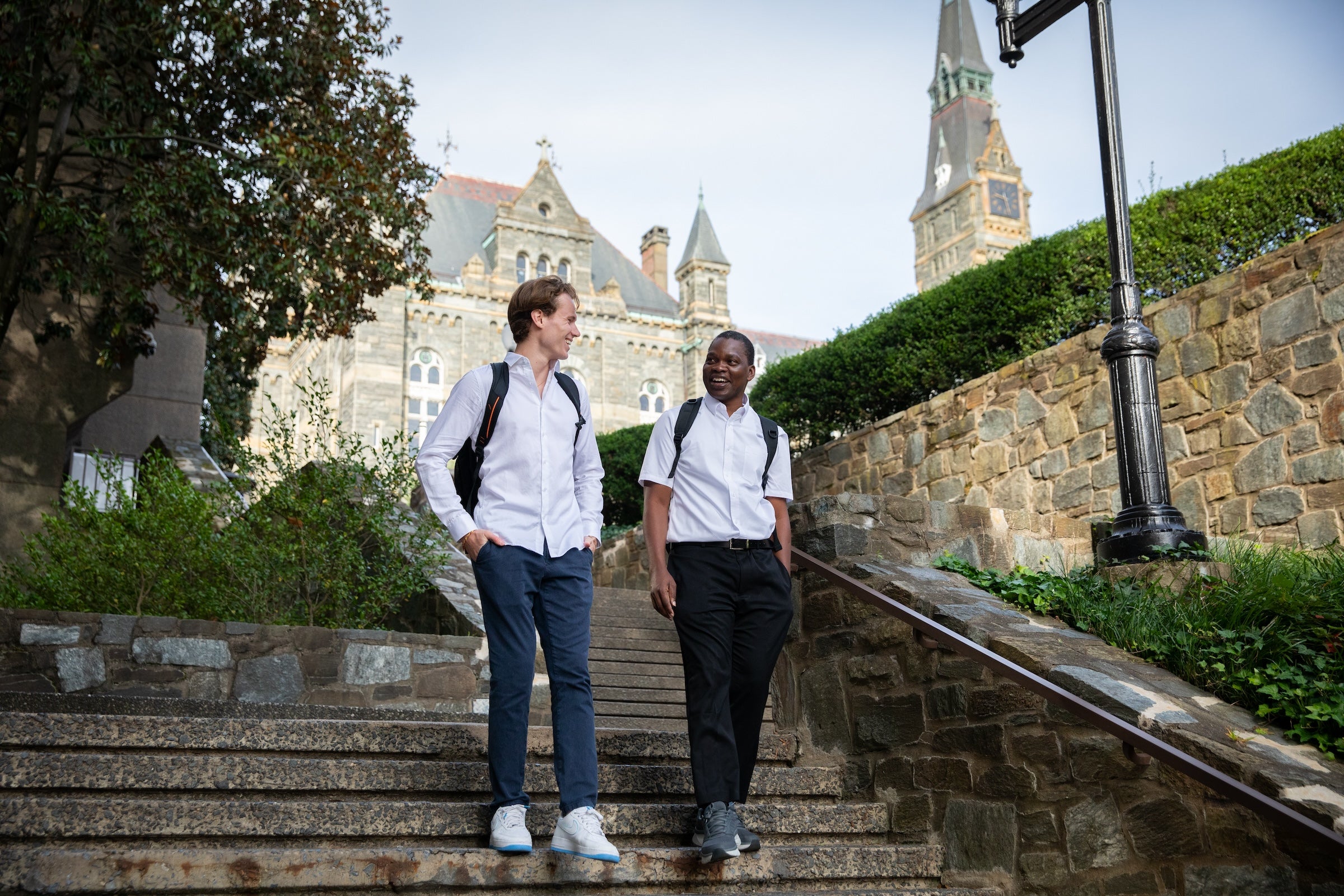Admissions & Tuition
The Master of Arts in Conflict Resolution welcomes applications from prospective students with a variety of academic backgrounds and experiences. Applications are reviewed for admission once a year for fall enrollment. Applications for fall 2026 are closed. Applications for fall 2027 will open in July 2026.
Use this page to understand how to apply and how to fund your education.
Watch an admissions event

Our regular information session series has concluded for the season. On December 17, our director Professor Katy Collin hosted our final information session of the year on YouTube Live. Check out the link below for more details.
Application deadline
| Round | Application Deadline | Expected Decision Notification |
|---|---|---|
| Final | January 15 | Mid-March |
How to apply
To apply to the Master of Arts in Conflict Resolution program, you must submit the Office of Graduate Admissions application and all required materials online. Their office oversees the collection of admissions documents for our program and determines which documents are acceptable for submission. Please follow their guidance to successfully complete your application.
The program admits students for fall entry on an annual basis.
Understanding the admissions process
After the January 15 application deadline, the Conflict Resolution program receives applications from the Office of Graduate Admissions and reviews candidates. We work jointly with Graduate Admissions to help applicants navigate the process.
- Contact the Office of Graduate Admissions: If you have questions about the application platform, the document submission process or the release of official decision letters.
- Contact the Conflict Resolution team: If you have questions about the program or need tips for preparing your application, you can email conflictresolution@georgetown.edu.
Tuition
For the 2026-2027 academic year, tuition for the Master of Arts in Conflict Resolution costs $2,758 per credit. This rate is established by Georgetown’s Joint Office of Graduate Studies. The cost of the degree varies slightly from year to year, as tuition rates are typically updated annually. The Office of Revenues and Receivables has an updated tally of the per-credit tuition cost and associated fees.
*Tuition rates for each term are published annually, typically in February.
Calculating the cost of your degree
Our program is a 34-credit degree. To help estimate the cost, keep this typical schedule in mind:
- Most students take 25 credits in the first year of study (at the set tuition rate). This means you’ll pay your first three semesters of tuition (fall, spring, summer) at one rate. Typically, the second fall semester has a new per-credit tuition rate.
- Most students take nine credits in the second year at an updated tuition-per-credit cost.
Additional expenses may include individual health care or health insurance premiums, books and supplies, student fees, visas and travel expenses. The Office of Revenue and Receivables provides more information regarding tuition and student fees.
We encourage you to carefully review the fee schedule managed by the Office of Revenue and Receivables and the cost of attendance estimate provided by the Office of Student Financial Aid.
Financing graduate school
Most of our students fund their graduate degree through a combination of savings, student loans, private/external scholarships and fellowships, and merit aid.
Request more information
Make an impact on a global scale or in your local community by embarking on an enriching journey through our Master of Arts in Conflict Resolution program.
